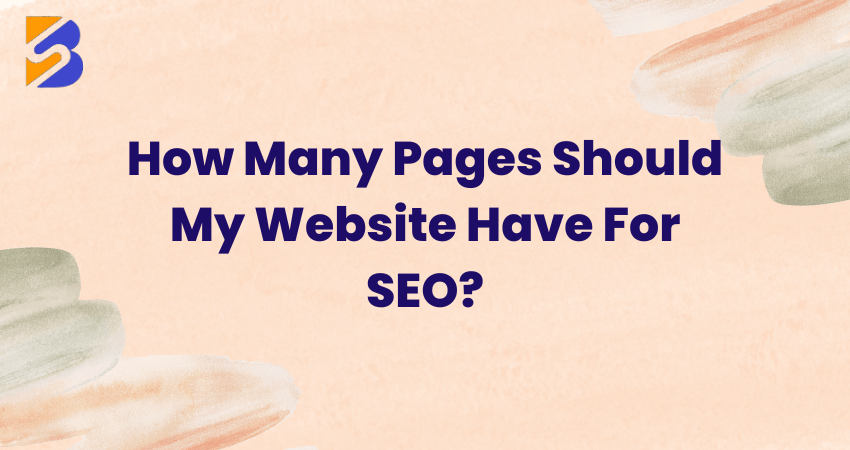As a digital marketing agency, it’s crucial to create a website that’s optimized for search engines. One question that often arises is, “how many pages should my website have for SEO?” The number of pages on your website can have a significant impact on your SEO performance. However, there is no one-size-fits-all answer to the question of how many pages you should have. The ideal number of pages will vary depending on your industry, target audience, and the type of content you want to create. In this blog post, we will discuss the factors that influence the number of pages you should have on your website for SEO.
Factors to Consider When Deciding How Many Pages to Have
There are a number of factors to consider when deciding how many pages to have on your website for SEO. These include:
Purpose of Your Website
The purpose of your website is a significant factor in determining the number of pages required. A website with a single service or product offering may only need a few pages. In contrast, a website with multiple offerings and complex services may require more pages to explain them adequately. Determine the purpose of your website before deciding the number of pages required.
Size of Your Business
The size of your business is another critical factor in determining the number of pages your website needs. A small business may only need a few pages to explain their products or services. In contrast, a large corporation may require hundreds of pages to explain their offerings, team members, locations, and other information.
Competition Level
The level of competition in your industry can also affect the number of pages your website needs. If you’re in a highly competitive industry, you may need more pages to provide in-depth information on your products or services to compete with other businesses in your field.
Keyword Research
Keyword research is vital for SEO. It helps you determine the most relevant keywords to include on your website to attract your target audience. The number of keywords you need to target will also affect the number of pages you need to optimize. If you’re targeting a wide range of keywords, you may need more pages to target them effectively.
User Experience
User experience is essential for SEO. You want to provide your website visitors with a positive user experience to increase engagement and reduce bounce rates. Too many pages can overwhelm users and make it challenging to navigate your website. Too few pages may not provide enough information to keep users interested. Finding a balance is crucial.
Ideal Number of Pages for SEO
There’s no magic number of pages for SEO. In most cases, aiming for at least 50-100 pages will give you a good starting point. This includes a homepage, main navigation categories, and individual landing pages for each product or service you offer. From there, you can add additional pages as needed based on user demand and keyword research.
Here are some guidelines to help you determine the ideal number of pages for your website:
Homepage: Your website should have a clear and concise homepage that explains your brand and offerings.
Services/Products Page: Create a dedicated page for each service or product you offer.
About Us Page: Tell your story and introduce your team to build trust with your audience.
Contact Us Page: Provide multiple ways for visitors to contact you, including phone, email, and social media.
Blog: Creating a blog can help you target a wide range of keywords and provide valuable information to your audience.
Conclusion
Ultimately, the key is not just to create more pages but also to make sure that they provide value to your users and meet best practices in terms of design, mobile responsiveness, loading times, and overall user experience. By focusing on these aspects and regularly updating your site with fresh and relevant content, you can build a strong foundation for long-term success in SEO.



